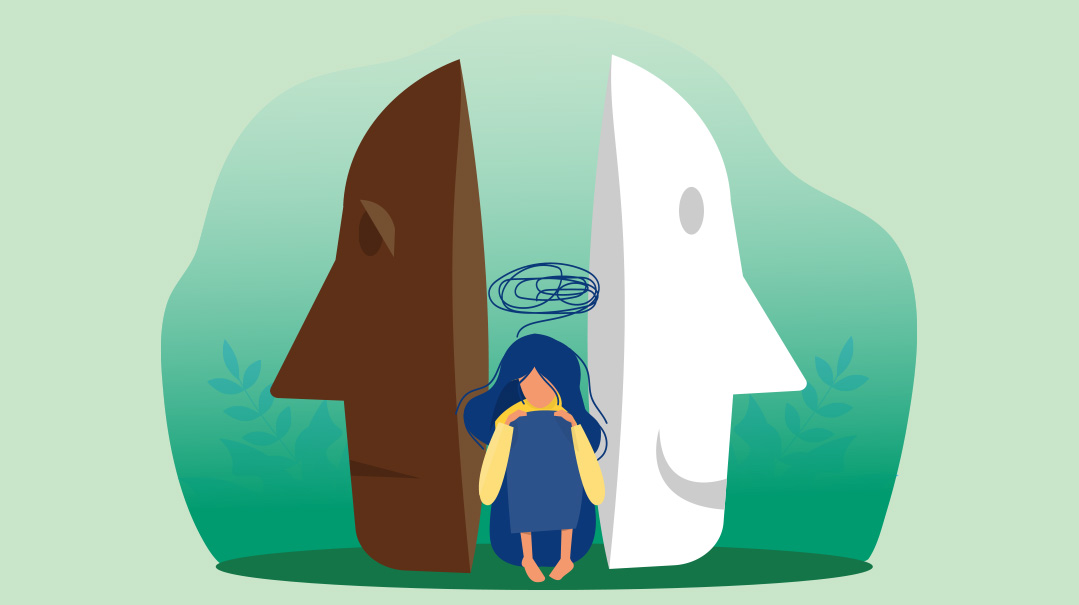Make Space for Change
| February 21, 2023This story has a happy ending — or, rather, a happy beginning

Make Space for Change
Shoshana Schwartz
AS a teen, Gila* had a pattern of unhealthy relationships — she’d become overly focused on one friend, on high alert for signs of distance. Sometimes the friend would be equally clingy; sometimes it was one-sided. But it always ended with drama and tears. Gila’s mom couldn’t bear to see her unhappy, so she sent her to therapy, which terminated once Mom saw her revert to her “usual happy self.” Now that she was acting normally, Mom didn’t see any reason for her to continue.
At 24, Gila was still living at home. Her pattern of intense friendships continued, and the most recent breakup had been so traumatic that Gila finally admitted to herself that she couldn’t continue that way anymore. This time, it was Gila who sought out therapy.
In therapy, Gila began to understand how she’d always held back her tears and fears, even from a young age. Although no one ever explicitly told her she always had to be happy, there was an unspoken understanding that Mom couldn’t handle negative emotions, and Gila unconsciously took it upon herself to shield her mother from any unpleasantness. This generalized into taking responsibility for how others feel.
At her therapist’s suggestion, she also began a 12-step program for codependents. Slowly, Gila was able to give herself permission to feel a whole range of emotions — both positive and negative — and she gained tools to survive them without seeking escape or outside validation that she was okay. She began to express her opinions and was willing to endure the inevitable conflict. She let go of the burden of being responsible for other people’s feelings.
And that’s when new trouble started.
Gila’s newfound authenticity was anathema to her mother, who couldn’t tolerate seeing her daughter without a bright smile. When Gila tried to share, Mom shut her down, confounded as to why therapy seemed to make her more unhappy. Since Mom was perfectly content (or perhaps compelled because of her own inner demons) to live life on the surface, she couldn’t comprehend Gila’s deep need for genuine connection with both her inner and outer worlds.
Instead of supporting the change, Mom reminded Gila that everything Hashem does is good, that she needs to smile through adversity. She pressured Gila to avoid conflict and criticized her for any show of sadness or fear. She heaped guilt on her for creating a “depressed” atmosphere at home.
This story has a happy ending — or, rather, a happy beginning. Realizing that she couldn’t force Gila to revert to her “usual happy self,” Mom chose to stop pressuring her. Eventually, Gila was able to share with Mom pieces of her journey, and the two came to an understanding about Gila’s need for authenticity and permission to take off her mask.
When a family member is in therapy, he or she is there to change. Sometimes that change may not be entirely pleasant for everyone else in her environment. Sometimes there’s a learning curve until new behaviors are integrated and become more natural and less jarring. Sometimes it’s the family’s unhealthy patterns that need to readjust to one member’s newer, healthier ones.
Wishing you all happy beginnings.
Shoshana Schwartz specializes in addiction and codependency. She gives in-person and online addiction prevention lectures and workshops to education and mental health professionals, community leaders, and parent groups, as well as 12-step workshops for non-addicts.
Just Choose
Dina Schoonmaker
Making decisions can be a difficult process. It’s important to realize that decision-making is actually conducive to our spiritual growth even when the decision does not seem to be about ruchniyus. It’s a chance for us to emulate Hashem, Who takes responsibility for His world and is constantly improving it. When I take responsibility for my olam malei, the life Hashem has given me, by making choices that I hope will have a positive effect, I am emulating Him.
There are three ways to abdicate our power in making decisions:
- The avoidant decision-making style, where we procrastinate until the default decision is whichever choice is left at the last minute.
- The dependent decision-making style, in which we ask other people and put the responsibility on them.
- The impetuous decision-making style, where we just do something like flipping a coin instead of making a thought-out choice.
All these approaches deny us the precious opportunity of taking responsibility for our own lives. Dovid Hamelech said, “Yegia kapecha ki socheil, ashrecha v’tov lach.” When we eat from the fruits of our own labors, it gives us a special satisfaction.
Proactive decision-making will lead to an elevated sense of satisfaction in our daily lives.
Dina Schoonmaker has been teaching in Michlalah Jerusalem College for over 30 years. She gives women’s vaadim and lectures internationally on topics of personal development.
Detach and Defend
Sara Eisemann
We don’t walk away to teach people a lesson.
We walk away because we finally learned ours.
—Anonymous
As growing people, we’re constantly trying to repair, to build, and to overcome. On occasion, it becomes clear that our avodah is to detach in order to heal. When those separations are necessary, it’s vital that they come from a healthy place of self-preservation and rejuvenation.
If we leave to “punish” someone, we haven’t really left at all. We’re still bound by the same toxic force, just in a different form. To really move on, we must separate because we finally recognize that our neshamah needs that protection.
Sara Eisemann, LMSW, ACSW, is a licensed therapist, Directed Dating coach and certified Core Mentor.
(Originally featured in Family First, Issue 832)
Oops! We could not locate your form.







